BBC celebrates 100th birthday
- Published
- comments
BBC 100: Children's shows over the years
The BBC is celebrating a big birthday- it's an incredible 100 years old!
The first daily radio broadcasts began at 6pm on 14 November 1922.
However, the TV hadn't been invented then, meaning it wasn't until more than a decade later when the BBC started broadcasting regular programmes on television.
Needless to say, a LOT has changed since then - let's take a look back at some of the BBC's highlights since it launched a century ago.
How did the BBC begin?
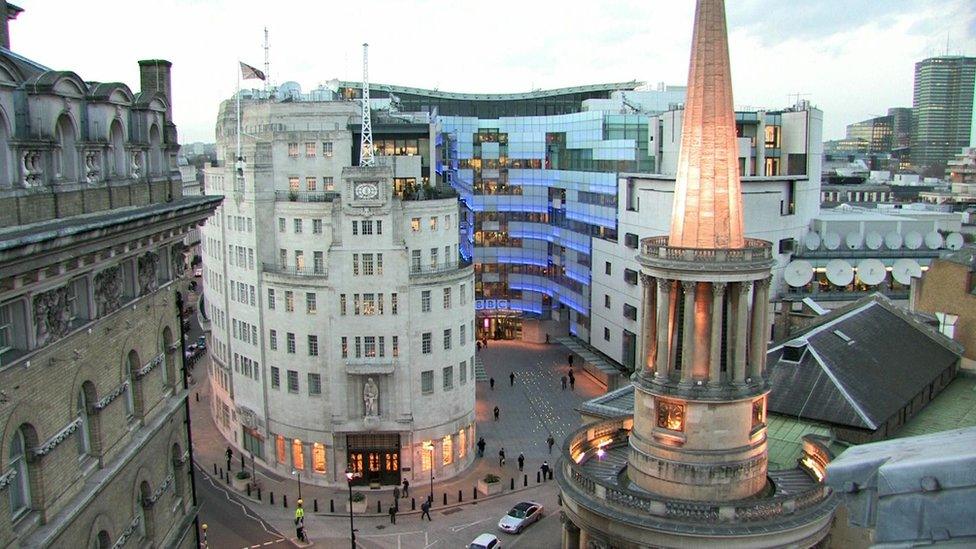
New Broadcasting House in Central London is the BBC's main headquarters
The BBC - or British Broadcasting Corporation - started on 18 October 1922 by a group of radio makers.
Lord John Reith became the first boss of the BBC and wanted broadcasting to be taken seriously.
He famously said that the BBC should "inform, educate, entertain" - in that order.
Children's Radio
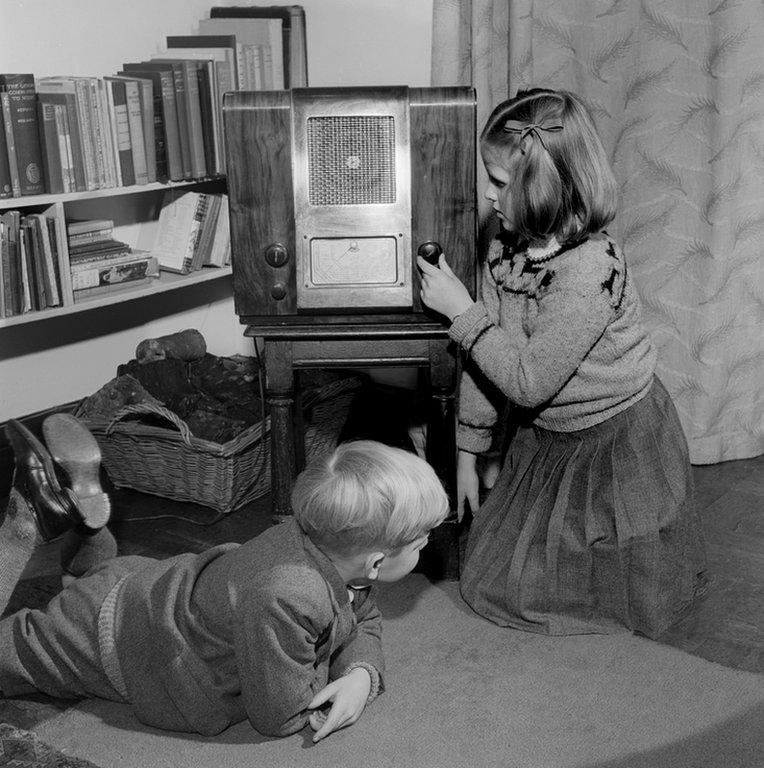
In the 1950s the radio looked very different to what it does today
It might seem hard to imagine but once upon a time children's TV didn't exist - in fact TV didn't exist!
A hundred years ago it hadn't been invented yet so if you were a child back then, you'd be listening to the radio.
The first children's radio programme began in 1922, soon after the BBC was set up.
It was called Children's Hour and was on between 5 and 6 o'clock every day - the time children would be home from school.
It was a popular programme and ran for more than 40 years, coming to an end in 1964.
Children's TV
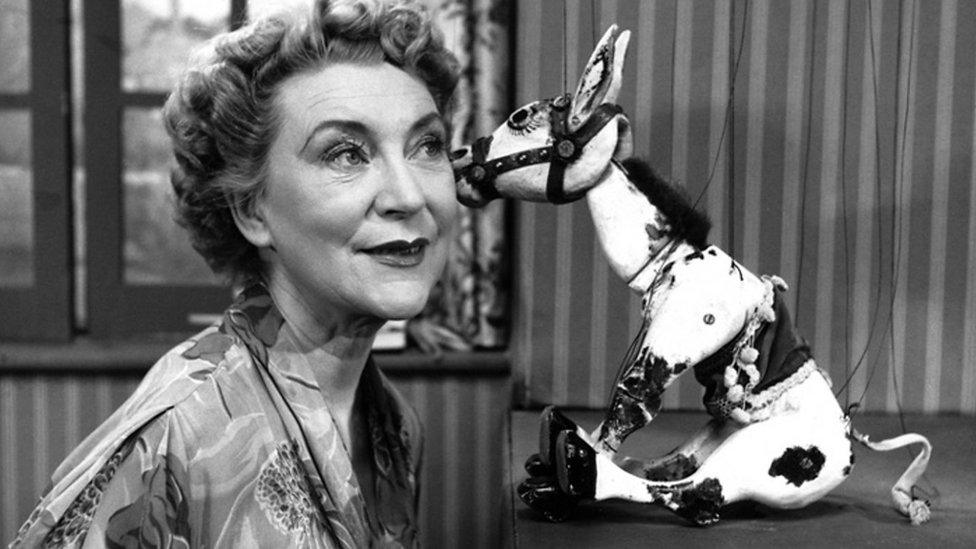
Presenter Annette Mills and Muffin the mule were popular on TV in the 1940s and 1950s
In 1936 the BBC kicked off the world's first regular high-definition television service - closely followed by the very first children's TV show called For the Children.
It was very popular with stories, songs and puppet shows making sidekicks like Muffin the mule regular favourites alongside the team of presenters.
But this was just the beginning.
Over the past century the BBC has produced some of the best-known children's programmes in the world - including some that have stood the test of time that your grandparents and even great-grandparents will remember!
1922: First radio station '2LO' is launched
1933: Sheila Borrett becomes the first female presenter
1936: World's first regular TV broadcasts
1946: First children's TV programmes begin
1955: First TV programme for deaf children
1962: BBC Two becomes the first colour TV channel in Europe
1997: BBC goes online
Blue Peter
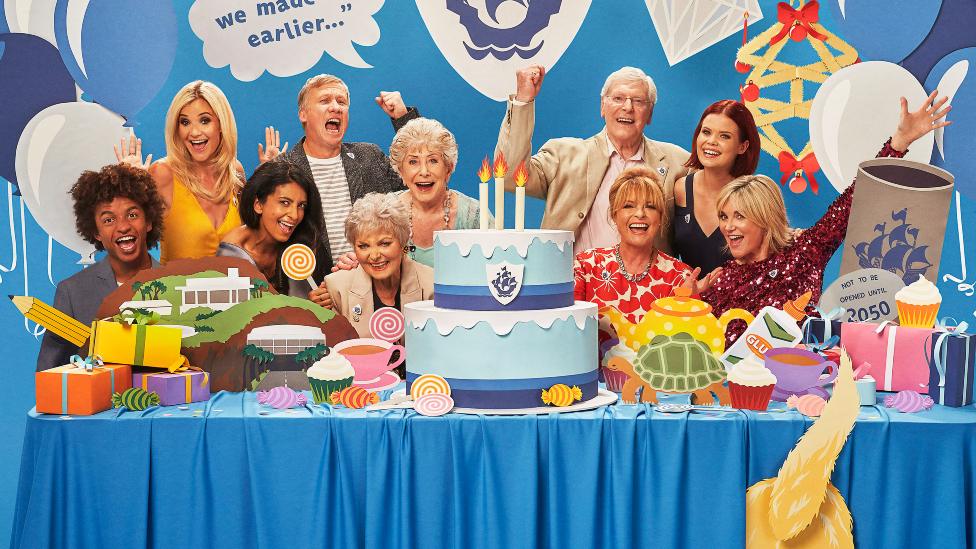
Some of Blue Peter's most famous presenters reunited for the show's 60th birthday in 2018
Blue Peter is the longest-running children's television show in the world.
It has been fronted by 41 presenters since its launch in 1958.
Blue Peter is named after the blue and white flag hoisted when a ship is ready to set sail from port.
The reason this was chosen is because the programme is intended to be a voyage of adventure and discovery for the viewers, constantly covering new topics.
Newsround
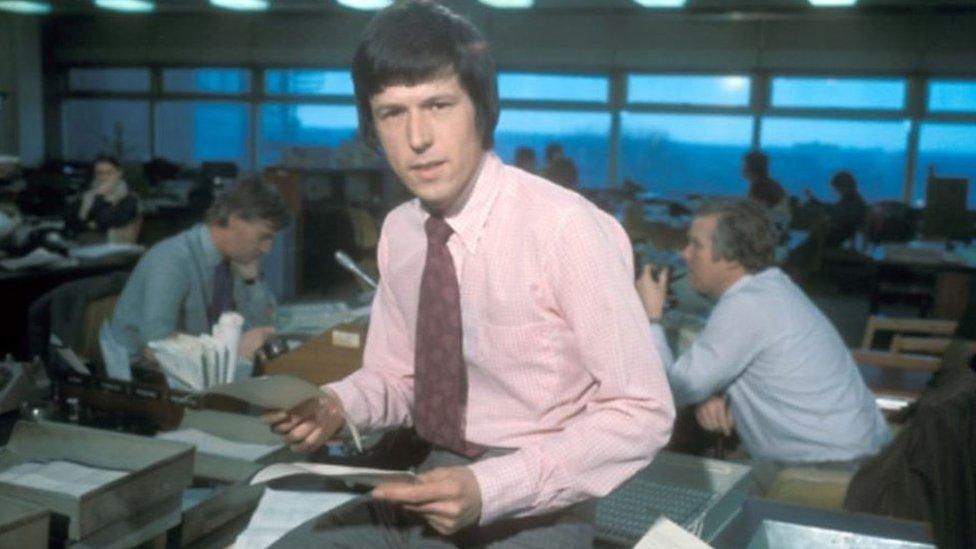
John Craven was the first presenter of Newsround
When it began on April 4 1972, Newsround - or John Craven's Newsround as it was known at the time - was only meant to be a six-week experiment!
At the time, there was some debate about whether children should be told about real world events.
Newsround became the first dedicated news programme for children.
The programme proved popular and John ended up presenting the programme for 17 years.
More than half a century later, the programme is still going strong.
CBBC Channel
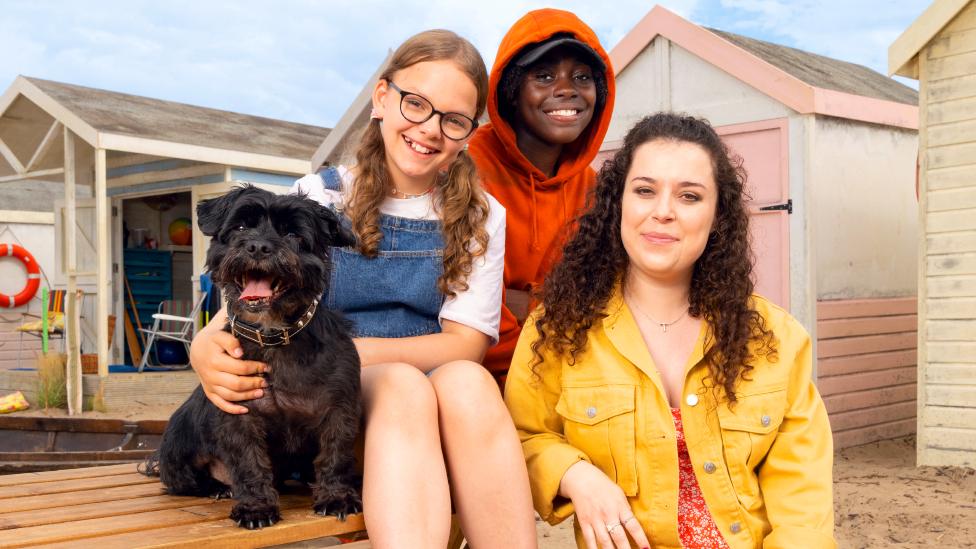
Programmes such as The Beaker Girls are broadcast on the CBBC Channel
For a long time children's television was something you could only watch at certain times on BBC1 or BBC2.
But on 11 February 2002, the CBBC channel was launched bringing your favourite shows, and presenters from seven in the morning until seven at night - and it was a big success.
In 2007, BBC iPlayer was launched, meaning that people could watch whatever they wanted, whenever they wanted to - including Newsround!
What's your favourite CBBC show of all time? Let us know why in the comments.
- Published10 October 2022
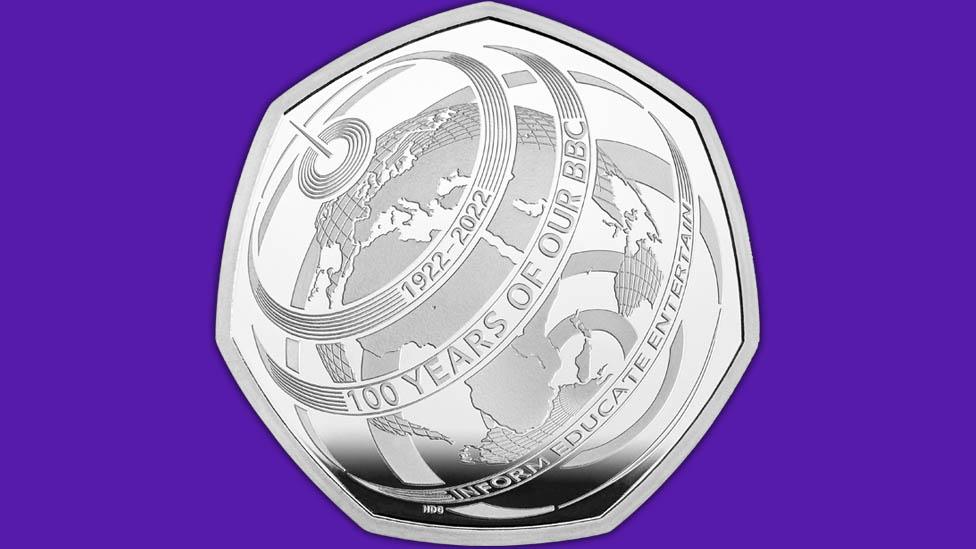
- Published5 April 2022
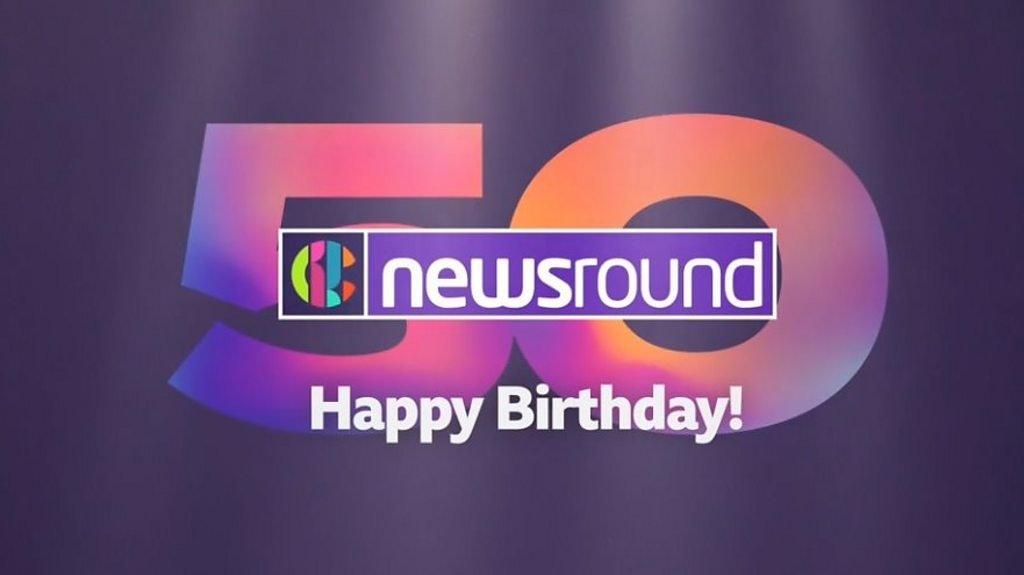
- Published26 May 2022

